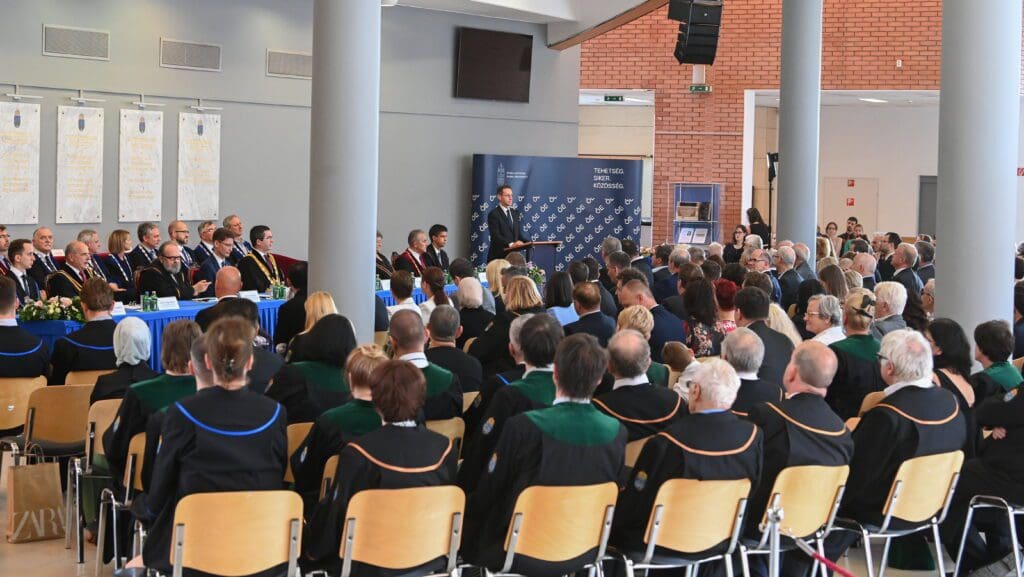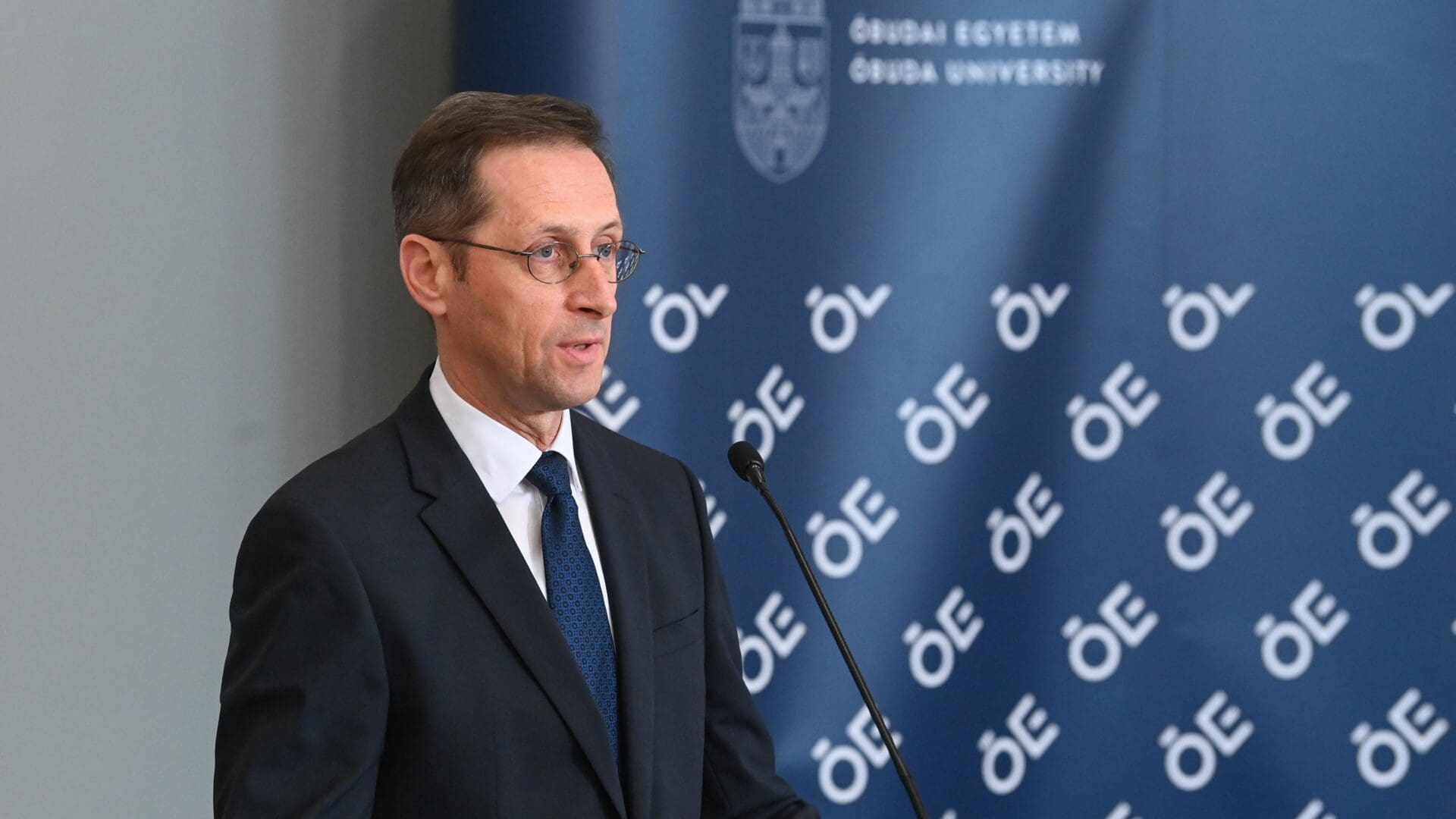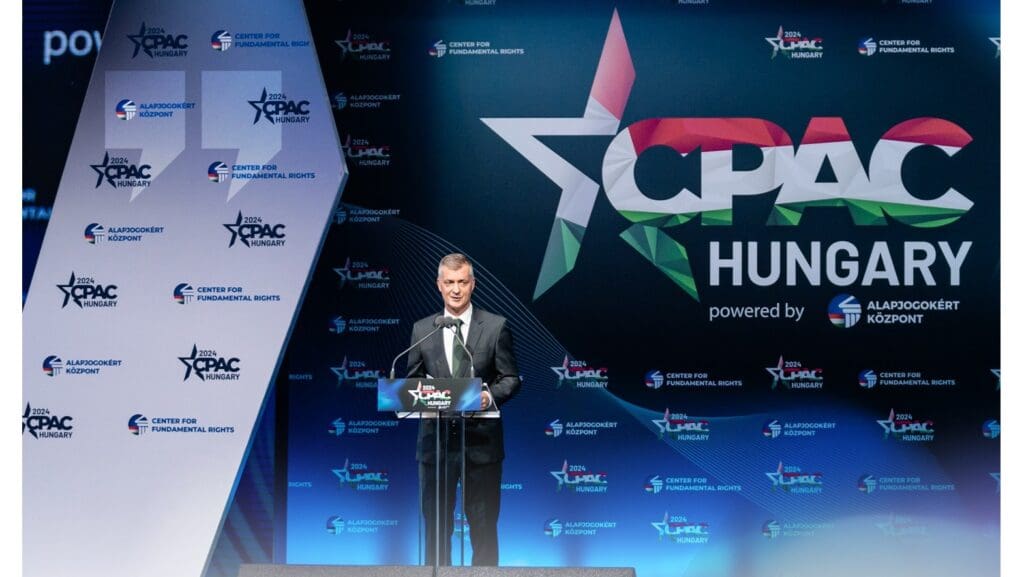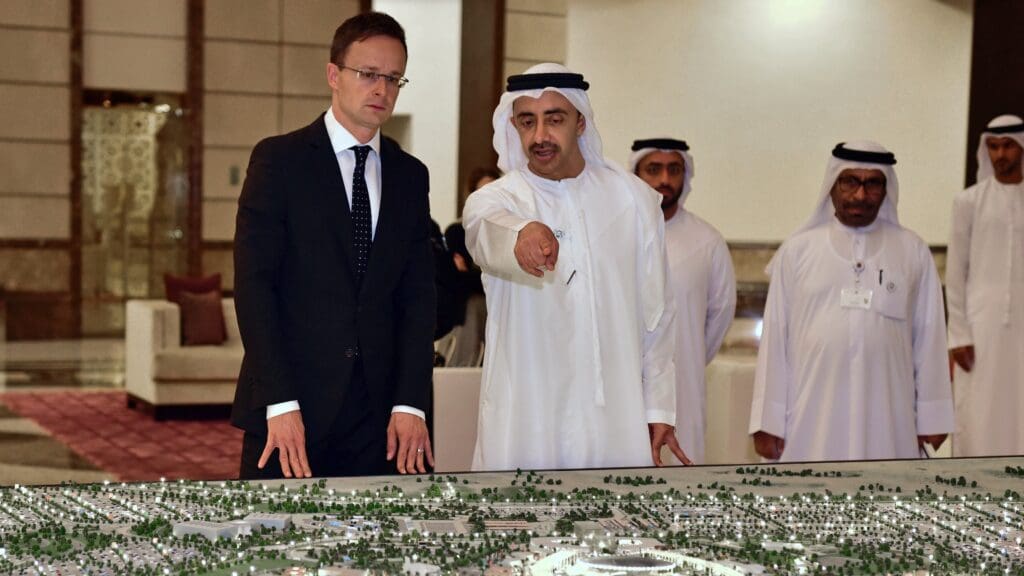Óbuda University traditionally marks Educators’ Day, commemorated each year on the first Sunday of June, by holding an EU-PED day, honouring the achievements of all Hungarian educators working in Hungarian-language tertiary education in the countries of the Carpathian Basin.
On Friday, 2 June, Minister of Finance Mihály Varga was the special guest of the day. In his remarks, he highlighed that Óbuda University has lived up to expectations, and there is a good chance for the educational institution to become one of the driving forces behind the country’s economic development.
He emphasised that after the transition to a new model, development began immediately at the university. The number of professors and scientific publications has increased since, and this year, there was a 30 per cent rise in student applications compared to last year. The university is currently recognised as being among the top 1,200 in the world, he highlighted. The minister of finance stated that the goal of the government with the transformation of higher education and the introduction of dual education was for universities to become ‘intellectual centres that define and broaden the country’s development opportunities.’

He recalled that Óbuda University was a kind of pilot project in the process of the transformation of higher education. He noted that it has now been proven that the whole is more than the sum of its parts, and universities have ‘exponential strength and development potential’ when united. Mihály Varga stressed that the new model of Hungarian higher education has clearly brought about positive results and can serve as an example for other countries. The path to research and development activities has been opened, which is also evident in the launch of scientific and innovation parks. The minister expressed satisfaction that Óbuda University attracts many young people from beyond the borders, often after having studied in another language in their birthplace.
Óbuda University has approximately 12,000 students in seven faculties and has signed cooperation agreements with 130 organisations. With the transition to the new, foundation-managed model, the resources allocated to operation and development have seen a two-and-a-half-fold increase, and faculty salaries have been raised to an unprecedented extent. Following the minister’s speech, the university’s teachers and patrons were honoured.
Related articles:








